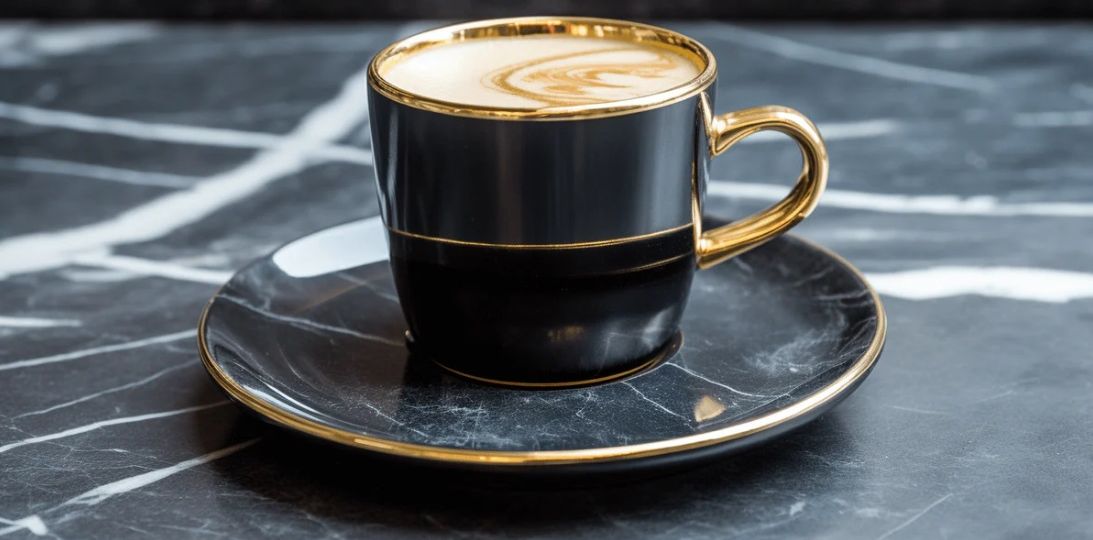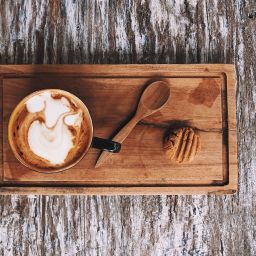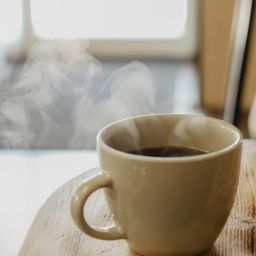
Ever had one of those mornings where you eagerly take a sip of your freshly brewed coffee, expecting that warm, comforting embrace, only to be met with a jolt of bitterness that makes your face scrunch up? It’s a common tale among coffee lovers, a sip that starts the day on a slightly sour note. But worry not, this bitter saga can have a happy ending.
This article dives into the why and how of bitter coffee – from the science behind the bitterness to straightforward fixes that promise to turn that frown upside down. Whether you’re a casual coffee drinker or a connoisseur, understanding these elements can significantly enhance your brewing game.
Key Takeaways
- Water Temperature and Grind Size: The heat of the water and the fineness of the coffee grounds play critical roles in extraction, influencing bitterness. Finding the sweet spot in temperature and grind size can transform your brew.
- Coffee Bean Quality: Not all beans are created equal. The type of bean, its roast, and freshness can dramatically affect taste. We’ll guide you on choosing the best for a smoother cup.
- Brewing Time and Equipment Cleanliness: How long you brew and how clean your equipment is can be the difference between a delightful or disappointing cup. Simple adjustments and regular cleaning can ensure consistently enjoyable coffee.
- Coffee-to-Water Ratio: Getting this ratio right is crucial for avoiding over-extraction, a common bitterness cause. We’ll provide recommendations to help you nail the perfect balance.
- Fresh Beans: The importance of using fresh beans cannot be overstated. Stale beans are a recipe for bitterness, but fresh, high-quality beans can elevate your coffee experience.
Understanding Bitter Coffee
Ever wondered why sometimes your coffee tastes more like a harsh reality check than a comforting morning ritual? The culprit often lies in one of three areas: over-extraction, bean quality, or brewing mishaps. Let’s unpack these bitter truths to ensure your next cup is nothing short of delightful.
The Bitter Side of Over-Extraction: Imagine soaking a tea bag in hot water for way too long. The result? A bitter cup that’s far from the soothing sip you anticipated. Coffee works much the same way. When water interacts with coffee grounds for too long, or the water is too hot, it draws out not just the rich flavors and aromas but also the harsh, bitter compounds. This over-extraction is a common bitterness source, making grind size, water temperature, and brewing time your brewing triangle of balance.
Grind Size – A Matter of Precision: Grind size directly impacts how water flows through the coffee, affecting extraction speed. Too fine, and you risk over-extraction; too coarse, and your brew might taste weak and underwhelming. Finding the right grind size for your brewing method is akin to choosing the right gear for a car – it needs to be just right to hit that sweet spot of flavor.
The Heat is On – Water Temperature Woes: Too hot, and your coffee screams in bitterness; too cold, and it whispers undeveloped flavors. The ideal brewing temperature—between 195°F and 205°F (90°C to 96°C)—is crucial for extracting just the right flavor notes without diving into bitterness. It’s a delicate dance with heat, one that can dramatically alter your cup’s taste profile.
Timing is Everything – Brewing Time: Brewing time is the duration your water and coffee grounds spend in each other’s company, and it needs to be just right. Too long, and you’ll over-extract; too short, and you’ll miss out on the coffee’s full flavor spectrum. Each brewing method has its ideal contact time to ensure you’re extracting the good without inviting the bad.
Quality Matters – Don’t Settle for Less: Last but not least, the quality of your beans can set the stage for your coffee’s taste. Poor quality beans, improperly stored or stale, can bring inherent bitterness to your cup, no matter how meticulously you brew. Opting for fresh, high-quality beans can make a world of difference, offering a cleaner, more vibrant cup.
Common Mistakes Leading to Bitter Coffee
When it comes to brewing coffee, sometimes it feels like walking a tightrope—lean too much to one side, and your cup is a bitter disappointment. Avoid these common pitfalls to keep your coffee game strong and your brews smooth.
Boiling Mad: The Peril of Too-Hot Water
Using water that’s just off the boil seems logical for extracting all those rich coffee flavors, right? Not quite. Pouring boiling water over coffee grounds is like a sledgehammer to a nut—too much. It scorches the coffee, extracting not just the flavors but also the bitter compounds that we’d rather leave behind. Letting the water cool for a minute to reach the ideal brewing temperature can be the difference between bitter and blissful.
Grind Size Gaffes: Too Fine or Too Coarse
Picking the wrong grind size is like choosing the wrong tool for the job. Too fine, and your coffee becomes the embodiment of bitterness as the water struggles to pass through, over-extracting along the way. Too coarse, and you’ll barely scratch the surface of flavor.
Matching your grind size to your brewing method is key—a coarse grind for French press, finer for espresso. Think of it as pairing the right gear with the right terrain in a journey to Flavor Town.
The Sneaky Culprit: Dirty Equipment
Last but certainly not least, let’s talk cleanliness. Over time, coffee oils and grounds build up in your equipment, turning your morning brew into a bitter brew. This is especially true for machines and gadgets with hard-to-reach nooks and crannies. Regular cleaning and descaling remove these remnants, ensuring your coffee tastes as good as it should. Think of it as giving your coffee maker a spa day—it deserves it for all the hard work it does.
Adjusting the Brew
Fixing bitter coffee might seem like alchemy, but with a few tweaks, you can turn that bitter brew into a cup of gold. Here’s how:
- Change the Grind Size: If your coffee is consistently bitter, think about the grind. A coarser grind reduces surface area, slowing down extraction and reducing bitterness. Experiment until you find the grind that hits the sweet spot for your brew method.
- Cool Down the Water: Before you pour, let boiling water cool for about a minute. Aim for that golden range between 195°F and 205°F. This temperature sweet spot encourages optimal extraction—flavorful but not bitter.
- Modify the Coffee-to-Water Ratio: Sometimes, bitterness comes from using too little coffee for the water, leading to over-extraction. Adjust your ratio, aiming for about 1:15 to 1:17 coffee to water. It’s all about finding the balance that suits your taste buds.
Choosing the Right Coffee Beans
Bean Type Matters: Arabica beans are generally sweeter and more complex in flavor, while Robusta beans tend to be more bitter but with a higher caffeine content. Choosing high-quality Arabica beans can naturally lead to a less bitter cup.
Freshness is Key: Coffee beans are best used within weeks of roasting, not months. Fresh beans mean more flavor and less bitterness. Look for beans with a roast date and use them while they’re fresh. As beans age, they lose their nuanced flavors and can become more bitter.
The Role of Equipment Maintenance
Keeping your coffee brewing equipment clean is like giving your car a regular oil change—it ensures everything runs smoothly and tastes right. Over time, coffee oils and residue build up, imparting bitter flavors into your brew. A simple, regular cleaning routine can prevent this, making each cup as fresh as possible.
Whether it’s a daily rinse for your French press or a monthly deep-clean for your espresso machine, each step helps eliminate unwanted bitterness. Think of it as preserving the essence of your coffee, ensuring that what ends up in your cup is nothing but pure, delightful coffee flavor.
Advanced Tips for the Perfect Brew
Exploring different brewing methods is not just about the taste—it’s about the journey. Each method, from the French press to drip, from espresso to cold brew, extracts coffee differently, offering unique flavor profiles. A French press might unveil a richer, fuller body, while drip coffee highlights the bright, acidic notes.
Espresso packs flavor and caffeine into a tiny, potent shot, contrasting with the smooth, mild nature of cold brew. By experimenting, you can discover which method suits your taste preferences best, possibly leading you to a less bitter coffee experience. It’s all about finding your personal coffee nirvana.
The Science of Water in Coffee Brewing
Water isn’t just water, especially when it comes to brewing coffee. The mineral content and quality of the water you use can significantly influence the taste of your coffee. Hard water, with its high mineral content, can make your coffee taste more bitter, while soft water may fail to extract some of the coffee’s rich flavors.
Using filtered or bottled water can strike the right balance, giving you a clean slate to extract the perfect cup. It’s a simple switch that can have a profound effect on minimizing bitterness, ensuring that your coffee tastes just as it should—delicious and balanced.
FAQs
Why does my coffee taste bitter all of a sudden?
Sudden bitterness in your coffee could be due to changes in water quality, a shift in your brewing method, or even the freshness of your beans. Check for any alterations in your coffee-making routine and adjust accordingly.
Does the roast level affect bitterness?
Yes, the roast level can significantly impact bitterness. Darker roasts tend to be more bitter due to the longer roasting process, which develops more intense flavors. Lighter roasts are generally less bitter, offering a smoother taste.
Is bitter coffee bad for your health?
Coffee, when consumed in moderation, has many health benefits. Bitterness in coffee itself isn’t harmful and can actually be a sign of the coffee’s rich antioxidant content. However, taste preferences vary, and it’s essential to enjoy your coffee in a way that suits your palate and health needs.
Final Thoughts
Making the perfect cup of coffee is an art and a science, one that requires attention to detail but is also forgiving enough for experimentation. Adjusting grind size, water temperature, and coffee-to-water ratio can alleviate bitterness, making each cup a more enjoyable experience. Choosing the right beans and keeping your equipment clean further ensures a delightful brew.
With these adjustments and a bit of patience, you’re well on your way to crafting coffee that’s just right for you. Embrace the journey of perfecting your brew, and enjoy the delicious results.









